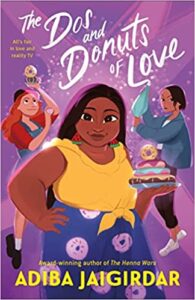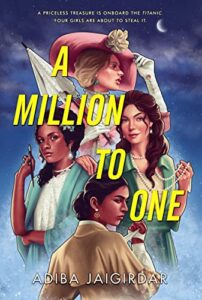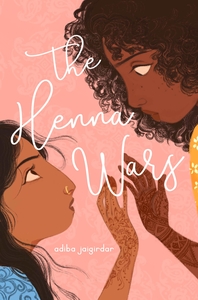Adiba Jaigirdar, author of The Henna Wars and Hani and Ishu’s Guide to Fake Dating, has become known for her compulsively readable teen romances centering queer Bangladeshi-Irish characters. Her newest novel, The Dos and Donuts of Love, tackles fatphobia, racism, and familial expectations, this time on the set of a nationally televised baking competition.
Seventeen-year-old Shireen Malik is at a low point heading into summer vacation. Her best (and only Bangladeshi) friend Fatima is spending most of summer vacation visiting family in Bangladesh, and Shireen is recovering from a recent breakup. Between shifts at her parents’ struggling donut shop You Drive Me Glazy, Shireen barely leaves her bedroom, marathon-watching Great British Bake Off, FaceTiming with Fatima, and obsessively checking her email for news from Junior Irish Baking Show.
When Shireen receives a congratulatory email inviting her to be on the show, she feels like she has no one to celebrate with—her parents seem wary of the pressures of reality TV, Fatima is in a different time zone, and her ex is out of the picture. But Shireen is determined to prove herself as Ireland’s most talented young baker, and to represent her South Asian identity amid a mostly white pool of competitors.
But when Shireen shows up to the first filming, she finds herself face to face with her ex Chris Huang. Chris is not just her ex, but also the daughter of her family’s rival donut shop owners. Shireen has to navigate the next few months of high-pressure competition confronting the hostile feelings from her recent breakup, and to complicate matters, she has developed feelings for Niamh, another charismatic contestant on the show.
I’ll be honest—I typically do not go for the increasingly popular baking/romance genre. But as a recent (and very late to the game) fan of Great British Bake Off, I was sucked right into this baking competition setting, the coziness and high stakes of which Jaigirdar very realistically brings to life. Shireen is a tenacious, lovable, fat-positive main character who, despite her self-confidence, falls prey to the toxic culture of reality TV fame and to the overwhelming feelings of teenage romance. Jaigirdar does a flawless job of balancing interpersonal drama with the more sobering issues of body standards and anti-Asian rhetoric thrown at Shireen and Chris as they progress through the competition. I look forward to working my way back through Jaigirdar’s previous books, which I suspect are equally fun, thoughtful, and heartwarming.




